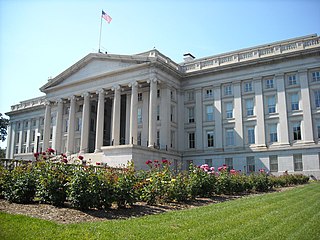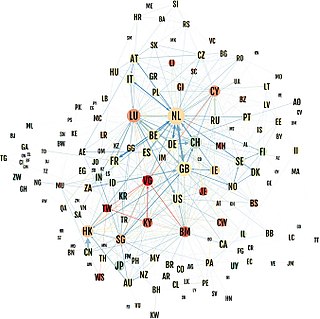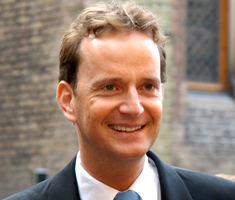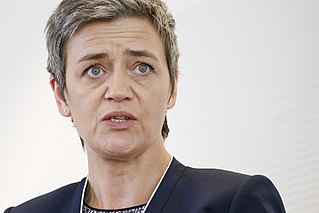 W
WBase erosion and profit shifting (BEPS) refers to corporate tax planning strategies used by multinationals to "shift" profits from higher-tax jurisdictions to lower-tax jurisdictions, thus "eroding" the "tax-base" of the higher-tax jurisdictions. The Organisation for Economic Co-operation and Development (OECD) define BEPS strategies as "exploiting gaps and mismatches in tax rules".
 W
WThe Cayman Islands is a self-governing British Overseas Territory, the largest by population, in the western Caribbean Sea. The 264-square-kilometre (102-square-mile) territory comprises the three islands of Grand Cayman, Cayman Brac and Little Cayman, which are located to the south of Cuba and northeast of Honduras, between Jamaica and Mexico's Yucatán Peninsula. The capital city is George Town on Grand Cayman, which is the most populous of the three islands.
 W
WConduit OFC and sink OFC is an empirical quantitative method of classifying corporate tax havens, offshore financial centres (OFCs) and tax havens.
 W
WIreland's Corporate Tax System is a central component of Ireland's economy. In 2016–17, foreign firms paid 80% of Irish corporate tax, employed 25% of the Irish labour force, and created 57% of Irish OECD non-farm value-add. As of 2017, 25 of the top 50 Irish firms were U.S.–controlled businesses, representing 70% of the revenue of the top 50 Irish firms. By 2018, Ireland had received the most U.S. § Corporate tax inversions in history, and Apple was over one–fifth of Irish GDP. Academics rank Ireland as the largest tax haven; larger than the Caribbean tax haven system.
 W
WThe Double Irish was a base erosion and profit shifting (BEPS) corporate tax tool used mostly by US multinationals since the late 1980s to avoid corporate taxation on non-U.S. profits. It was the largest tax avoidance tool in history and by 2010 was shielding US$100 billion annually in US multinational foreign profits from taxation, and was the main tool by which US multinationals built up untaxed offshore reserves of US$1 trillion from 2004 to 2018. Traditionally, it was also used with the Dutch Sandwich BEPS tool; however, changes to Irish tax law in 2010 dispensed with this requirement.
 W
WDutch Sandwich is a base erosion and profit shifting (BEPS) corporate tax tool, used mostly by U.S. multinationals to avoid incurring EU withholding taxes on untaxed profits as they were being moved to non-EU tax havens. These untaxed profits could have originated from within the EU, or from outside the EU, but in most cases were routed to major EU corporate-focused tax havens, such as Ireland and Luxembourg, by the use of other BEPS tools. The Dutch Sandwich was often used with Irish BEPS tools such as the Double Irish, the Single Malt and the Capital Allowances for Intangible Assets ("CAIA") tools. In 2010, Ireland changed its tax-code to enable Irish BEPS tools to avoid such withholding taxes without needing a Dutch Sandwich.
 W
WOn 29 August 2016, after a two-year investigation, Margrethe Vestager of the European Commission announced: "Ireland granted illegal tax benefits to Apple". The Commission ordered Apple to pay €13 billion, plus interest, in unpaid Irish taxes from 2004–14 to the Irish state. It was the largest corporate tax "fine" in history. On 7 September 2016, the Irish State secured a majority in Dáil Éireann to reject payment of the back-taxes, which including penalties could reach €20 billion, or 10% of 2014 Irish GDP. In November 2016, the Irish government formally appealed the ruling, claiming there was no violation of Irish tax law, and that the commission's action was "an intrusion into Irish sovereignty", as national tax policy is excluded from EU treaties. In November 2016, Apple CEO Tim Cook, announced Apple would appeal, and in September 2018, Apple lodged €13 billion to an escrow account, pending appeal. In July 2020, the European General Court struck down EU tax decision as illegal, ruling in favor of Apple.
 W
WThe Financial Secrecy Index (FSI) is a report published by the advocacy organization Tax Justice Network which ranks countries by financial secrecy indicators, weighted by the economic flows of each country.
 W
WThe global minimum corporate tax rate, abbreviated GMCT or GMCTR, is an agreement between national leaders which proposes to reduce tax competition between countries and the avoidance of corporate taxes by setting a world-wide minimum corporate tax rate. Agreement on a rate of 15% was signed by country leaders on 30 October 2021, and is expected to be subsequently confirmed by parliaments.
 W
WThe Hidden Wealth of Nations: The Scourge of Tax Havens is a 2013 book by French economist Gabriel Zucman, which popularized the concept of both the tax haven and corporate tax haven. The French publication was translated into English by Teresa Lavender Fagan. The foreword was written by Thomas Piketty, Zucman's PhD supervisor. Both Piketty and Zucman are critical of capitalism in its present form. Where Piketty's best-selling Capital in the Twenty-First Century was the catalyst for debate about inequality, Zucman targets individual and corporate tax havens. According to Zucman's research, $USD7.6 trillion representing about eight percent of global net financial wealth, is held in offshore accounts where no taxes are collected.
 W
WThe Institute on Taxation and Economic Policy (ITEP) is a non-profit, non-partisan think tank that works on state and federal tax policy issues. ITEP was founded in 1980, and is a 501(c)(3) tax-exempt organization. ITEP describes its mission as striving to “keep policymakers and the public informed of the effects of current and proposed tax policies on tax fairness, government budgets and sound economic policy.”
 W
WThe International Financial Services Centre (IFSC) is an area of central Dublin and part of the CBD established in the 1980s as an urban regeneration area and special economic zone (SEZ) on the derelict state owned former port authority lands of the reclaimed North Wall and George's Dock areas of the Dublin Docklands. The term has become a metonym for the Irish financial services industry as well as being used as an address and still being classified as an SEZ.
 W
WIreland has been labelled a tax haven or corporate tax haven in multiple reports, an allegation which the state rejects. Ireland is on all academic "tax haven lists", including the § Leaders in tax haven research, and tax NGOs. Ireland does not meet the 1998 OECD definition of a tax haven, but no OECD member, including Switzerland, ever met this definition; only Trinidad & Tobago met it in 2017. Similarly, no EU–28 country is amongst the 64 listed in the 2017 EU tax haven blacklist and greylist. In September 2016, Brazil became the first G20 country to "blacklist" Ireland as a tax haven.
 W
WAn Irish Section 110 special purpose vehicle (SPV) or section 110 company, is an Irish tax resident company, which qualifies under Section 110 of the Irish Taxes Consolidation Act 1997 (TCA) for a special tax regime that enables the SPV to attain "tax neutrality": i.e. the SPV pays no Irish taxes, VAT, or duties.
 W
WLeprechaun economics is a satirical term coined by economist Paul Krugman to describe the 26.3 per cent rise in Irish 2015 GDP, later revised to 34.4 per cent, in a 12 July 2016 publication by the Irish Central Statistics Office (CSO), restating 2015 Irish national accounts. At that point, the historical distortion of Irish economic data by tax-driven accounting flows reached a climax. By 2020, Krugman said the term was a feature of all tax havens.
 W
WMaples Group is a multi-jurisdictional law firm headquartered in the Cayman Islands, with offices in traditional tax havens and corporate tax havens. It is a member of the offshore magic circle. The firm specialises in advising on the laws of the Cayman Islands, Ireland and the British Virgin Islands, across a range of legal services including commercial litigation, intellectual property, sport, and finance, in which the firm has a focus on the structuring of tax efficient legal structures, and executing base erosion and profit shifting (BEPS) transactions for corporations.
 W
WMatheson, is an Irish law firm partnership based in the IFSC in Dublin, which specialises in multinational tax schemes, and tax structuring of special purpose vehicles. Matheson is estimated to be Ireland's largest corporate law firm. Matheson state in the International Tax Review that their tax department is: "significantly the largest tax practice group amongst Irish law firms".
 W
WAn offshore financial centre (OFC) is defined as a "country or jurisdiction that provides financial services to nonresidents on a scale that is incommensurate with the size and the financing of its domestic economy."
 W
WFeargal O'Rourke is an Irish accountant and corporate tax expert, who is the managing partner of PwC in Ireland. He is considered the architect of the Double Irish tax scheme used by U.S. firms such as Apple, Google and Facebook in Ireland, and a leader in the development of corporate tax planning tools, and tax legislation, for U.S. multinationals in Ireland.
 W
WUnder Ministerial Order n. 150/2004 of 13 February, issued by the Portuguese Ministry of Finance and consequently updated, Portugal defines an official blacklist of countries and jurisdictions considered for legal and tax purposes as tax havens.
 W
WQualifying Investor Alternative Investment Fund or QIAIF is a Central Bank of Ireland regulatory classification established in 2013 for Ireland's five tax-free legal structures for holding assets. The Irish Collective Asset-management Vehicle or ICAV is the most popular of the five Irish QIAIF structures, and was designed in 2014 to rival the Cayman Island SPC; it is the main tax-free structure for foreign investors holding Irish assets.
 W
WA tax inversion or corporate tax inversion is a form of tax avoidance where a corporation restructures so that the current parent is replaced by a foreign parent, and the original parent company becomes a subsidiary of the foreign parent, thus moving its tax residence to the foreign country. Executives and operational headquarters can stay in the original country. The US definition requires that the original shareholders remain a majority control of the post-inverted company.